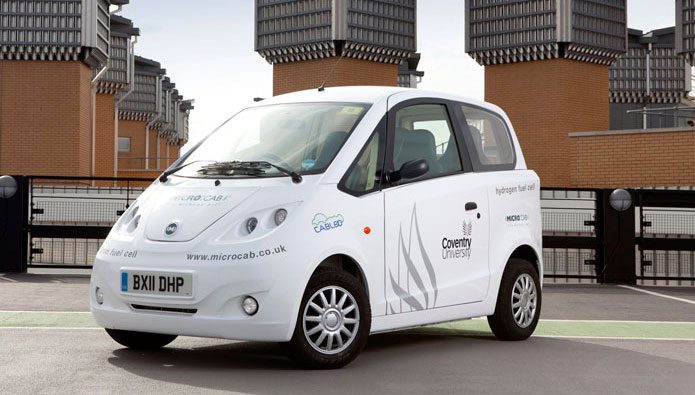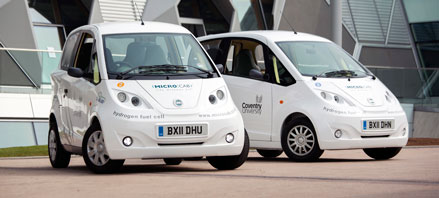Microcab Hydrogen Fuel Cells
Building on its strong automotive heritage, reputation for enterprise and innovation, and its commitment to the low carbon economy, Coventry University is at the forefront of developments in ‘green’ vehicle technologies.
Hydrogen fuel cell vehicles are being designed and built in Coventry through the university’s cutting-edge spin-out company Microcab, which sits as part of the Centre for Future Transport and Cities.
The company’s fleet of H2EV fuel cell vehicles are powered by a state-of-the-art 3kW fuel cell, which combines hydrogen from the pump with oxygen from the air to create electricity (which drives the car’s electric motors) and water (the car’s only emission) in a reaction known as ‘reverse electrolysis’.

Microcab’s zero emissions vehicles have a top speed of 55 mph and a range of 180 miles on a full tank. But unlike a pure electric vehicle, whose only power source – a battery – can take hours to charge, the H2EV can be refilled with hydrogen in a matter of minutes.
Shortlisted for transport design awards alongside major automotive players like BMW, Microcab complements Coventry University’s wider programme of teaching, research and development within the transport sector. And by plugging into nationwide and continental initiatives promoting the benefits of low carbon transport, Microcab is playing an active role boosting interest in and increased funding for green vehicle technology in the UK.
Developed in conjunction with the UK‘s burgeoning hydrogen fuelling network and aiming to stimulate further exploration into low carbon transport technologies, Microcab combines the latest knowledge in sustainable transport design with technical expertise from the automotive and motorsport industries.






